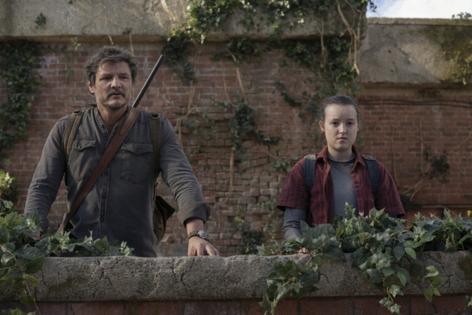Commentary: Let's learn from 'The Last of Us.' We're not ready for the next outbreak
Published in Op Eds
If you watch HBO’s “The Last of Us,” you see how a pandemic didn’t destroy the world — failure to communicate did. Trust collapsed. Institutions froze. And the people paid the price.
That’s fiction. But it’s also a warning.
In 2025, it’s not a zombie-creating fungus we face — it’s a slow-motion unraveling of America’s public health and civic response systems. Bird flu is spreading through cattle. Measles cases are surging. Misinformation is everywhere.
And yet, we still assume we’re prepared — or worse, we’re not talking nearly enough about the fact that we’re not.
The risks we face today — faster, more complex and more fragmented — are outpacing the systems designed to respond. While science and technology have advanced, our ability to mobilize trust and coordinated action hasn’t kept up. I’ve seen what works, from California wildfires to federal disaster response: When communication is clear, local and people-centered, it can mean the difference between chaos and control.
We shaped strategies rooted in behavioral science and crisis-tested messaging — and many of those principles still hold. But today’s realities demand we update and expand them. Without modern tools, deeper community investment and serious funding, we risk collapse not from contagion but from confusion.
Here’s how we rebuild trust before it’s too late:
Make listening a strategic function, not an afterthought. Crisis leaders must institutionalize community listening to adapt messaging in the moment. Real communication begins by understanding and addressing fears and needs — not assumptions.
Invest in the messengers who are already trusted — and often ignored. Fund and train local organizations, mutual aid groups, clinic staff, farmers, school administrators and faith leaders before a crisis hits. These are the conduits of trust — not afterthoughts but front-line infrastructure.
Operationalize cultural competence at scale. Don’t just translate messages; instead, co-create them with communities. Ensure every communication reflects regional nuance, cultural relevance and the realities of people most affected. That means multilingual, multigenerational and community-specific content across platforms.
Make accessibility nonnegotiable — and design for mobile and in-person delivery. Information must meet people where they are: on smartphones, in group texts and WhatsApp threads and through face-to-face engagement. Plain language, accessible formats, low-bandwidth options and printed hard copies aren’t extras — they’re essential infrastructure.
Enhance how we verify information in a peer-to-peer world. Neighbor-to-neighbor communication is powerful — and trusted. But we need a new standard for verification. Just as journalism relies on confirming facts through multiple credible sources, communities need clear, accessible ways to vet what’s shared via social media, texts or even a well-intentioned neighbor before acting on it.
Redefine metrics: Measure shifts in trust, not just impressions. Success isn’t reach — it’s behavioral change. Track how people feel, what they believe and whether they act. Build dashboards that combine digital, analog and on-the-ground data to gauge trust in real time.
Deploy small businesses to amplify messages. From neighborhood bodegas to local contractors, small businesses are anchors of trust. In many cases, a message from a local business owner carries more weight than a government announcement. These partners can tie public health and resilience to personal and economic security.
Establish rapid-response communications groups with real authority. In crisis, create agile, interdisciplinary teams that can cut through bureaucracy to counter misinformation, update messaging and shift narratives as conditions evolve.
Support community media and digital creators who shape public opinion every day. Substack writers, local reporters, ethnic media, video commentators, podcasters and chats on Reddit carry real influence. Leaders must build relationships with these trusted voices now — not just when a crisis makes headlines.
Back sound strategy with real dollars. Good intentions won’t save lives. Public, philanthropic and private-sector leaders must dedicate sustained, flexible funding for civic communications — or risk losing public trust when it matters most.
Collapse doesn’t begin with pathogens. It begins with silence, distrust and delay.
“The Last of Us” isn’t just a streaming series we love to watch on Sunday nights — it’s a metaphor for the world around us right now. If we want to survive the next outbreak — or the next wildfire, flood or power outage — we need more than vaccines and emergency declarations.
We need truth. We need trust. And we need to strengthen the systems that carry both. Before it’s too late.
____
Justin Ángel Knighten is a former crisis manager in California and Federal Emergency Management Agency associate administrator. Currently, he is an Institute of Politics Pritzker Fellow at the University of Chicago.
___
©2025 Chicago Tribune. Visit at chicagotribune.com. Distributed by Tribune Content Agency, LLC.



























































Comments